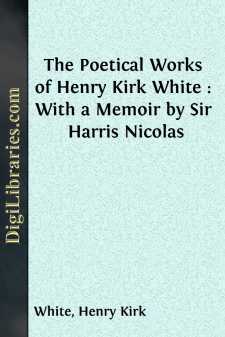Categories
- Antiques & Collectibles 13
- Architecture 36
- Art 48
- Bibles 22
- Biography & Autobiography 816
- Body, Mind & Spirit 145
- Business & Economics 28
- Children's Books 17
- Children's Fiction 14
- Computers 4
- Cooking 94
- Crafts & Hobbies 4
- Drama 346
- Education 58
- Family & Relationships 59
- Fiction 11834
- Foreign Language Study 3
- Games 19
- Gardening 17
- Health & Fitness 34
- History 1378
- House & Home 1
- Humor 147
- Juvenile Fiction 1873
- Juvenile Nonfiction 202
- Language Arts & Disciplines 89
- Law 16
- Literary Collections 686
- Literary Criticism 179
- Mathematics 13
- Medical 41
- Music 40
- Nature 179
- Non-Classifiable 1768
- Performing Arts 7
- Periodicals 1453
- Philosophy 66
- Photography 2
- Poetry 897
- Political Science 203
- Psychology 45
- Reference 154
- Religion 516
- Science 126
- Self-Help 85
- Social Science 82
- Sports & Recreation 34
- Study Aids 3
- Technology & Engineering 59
- Transportation 23
- Travel 463
- True Crime 29
Our website is made possible by displaying online advertisements to our visitors.
Please consider supporting us by disabling your ad blocker.
The Poetical Works of Henry Kirk White : With a Memoir by Sir Harris Nicolas
by: Henry Kirk White
Description:
Excerpt
BY SIR HARRIS NICOLAS.
Thine, Henry, is a deathless name on earth,
Thine amaranthine wreaths, new pluck'd in Heaven!
By what aspiring child of mortal birth
Could more be ask'd, to whom might more be given
TOWNSEND.
It has been said that the contrasts of light and shade are as necessary to biography as to painting, and that the character which is radiant with genius and virtue requires to be relieved by more common and opposite qualities. Though this may be true as a principle, there are many exceptions; and the life of Henry Kirke White, whose merits were unalloyed by a single vice, is one of the most memorable. The history of his short and melancholy career, by Mr. Southey, is extremely popular; and when it is remembered that its author is one of the most distinguished of living writers, that as a biographer he is unrivalled, and that he had access to all the materials which exist, it would be as vain to expect from the present Memoir any new facts, as it would be absurd to hope that it will be more worthy of attention than the imperishable monument which his generous friend has erected to his memory.
There is, however, nothing inconsistent with this admission, in presuming that a Life of the Poet might be written almost as interesting as the one alluded to, and without the writer assuming to himself any unusual sagacity. As Mr. Southey's narrative is prefixed to a collection of all Kirke White's remains, in prose as well as in verse, his letters are inserted as part of his works, instead of extracts from them being introduced into the Memoir. This volume will, on the contrary, be confined to his Poems; and such parts of his letters as describe his situation and feelings at particular periods will be introduced into the account of his life. Indeed, so frequent are the allusions to himself in those letters as well as in his poems, that he may be almost considered an autobiographer; and the writer who substitutes his own cold and lifeless sketch for the glowing and animated portrait which these memorials of genius afford, must either be deficient in skill, or be under the dominion of overweening vanity.
Few who have risen to eminence were, on the paternal side at least, of humbler origin than Henry Kirke White. His father, John White, was a butcher at Nottingham; but his mother, who bore the illustrious name of Neville, is said to have belonged to a respectable family in Staffordshire. He was born at Nottingham on the 21st of March, 1785; and in his earliest years indications were observed of the genius for which he was afterwards distinguished. In his poem "Childhood," he has graphically described the little school where, between the age of three and five, he
"enter'd, though with toil and pain,
The low vestibule of learning's fane."
The venerable dame by whom he was
"inured to alphabetic toils,"
and whose worth he gratefully commemorates, had the discernment to perceive her charge's talents, and even foretold his future celebrity:
"And, as she gave my diligence its praise,
Talk'd of the honour of my future days."
If he did not deceive himself, it was at this period that his imagination became susceptible of poetic associations....


